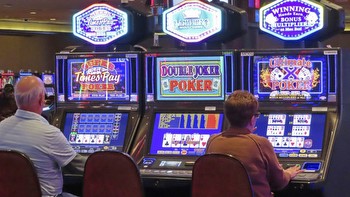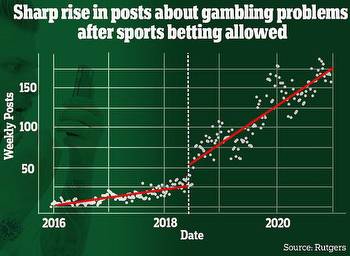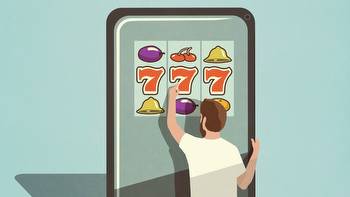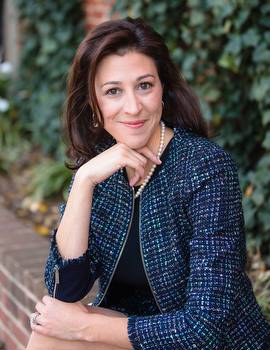Psychiatrists warn of problem gambling rise among over-60s
Psychiatrists are warning of a surprise rise in problem gambling among the over-65s after the group recorded the largest increase in online betting since before the pandemic.
About 620,000 more over-65s are gambling online at least once a month than in 2019 – a bigger increase than any other age group, according to analysis of Gambling Commission data by the Royal College of Psychiatrists (RCP).
Campaigners believe isolation at home and increasing reliance on Facebook and TV for contact with the outside world is likely to have exposed over-65s to more gambling advertising and to less regulated, more addictive online gaming.
Anxiety caused by isolation during lockdown, financial worries and a disruption of normal routines have also been suggested as possible reasons why more older people have turned to online betting, with the data showing increased online betting outweighs the reduction in use of betting shops caused by social distancing restrictions.
“The pandemic has shaken our lives in so many ways and these data show that many more older people are gambling online than were before the start of the pandemic,” said Prof Henrietta Bowden-Jones, the spokesperson for behavioural addictions at the RCP.
“Not everyone who gambles will develop a gambling disorder, but some will. Gambling disorder is an illness and if left untreated can lead to significant depression, anxiety and suicidal thoughts.”
The risk of addiction is higher with online gambling because of its greater accessibility and lower restrictions on stakes and speed, said Matt Zarb-Cousin, the director of Clean Up Gambling, a group campaigning for industry reform. Limits of £2 per spin have been placed on fixed-odds betting terminals in bookmakers, but not on slot games online where gamblers can place a bet and spin again every 2.5 seconds.
“[Older people] are at home, are more vulnerable and are shielding and only have Facebook, their laptop and TV to keep in touch with people [which means] they are being constantly marketed at and the temptation is always there,” Zarb-Cousin said. “They might sign up to bet on racing or sports, but they will be cross-sold the other addictive stuff like slots and will be given free spins and it is quite overwhelming.”
Only 8.7% of over-65s gambled online in the year to September 2019 but this rose to 13.5% in 2021, according to Gambling Commission figures that exclude gambling on the national lottery. The number of people across Great Britain who gambled on games excluding the lottery increased by 1.5 percentage points over that period.
The surge in senior online gambling was the sharpest rise of any age group. Next came 45- to 54-year-olds with an increase of about 340,000 online gamblers over the course of the pandemic so far.
The figures mean counsellors are braced for an increase in older people needing treatment for gambling disorders.
“We have not seen a large number of problematic gamblers in their 60s and 70s, but are we going to?” said Bowden-Jones. “Is this going to show as a change in the demographic presenting to NHS [addiction] clinics?”
Women also increased their online gambling activity during the pandemic, with the proportion of the female population gambling online rising from 13.2% to 16.2%, while levels of male online gambling stayed roughly stable.
GambleAware, which commissions the national gambling treatment service with NHS England, also said it had seen an increase in online gambling among the over-60s, and said it was working to boost awareness of treatments, including accessing the national gambling helpline on 0808 8020133.



































